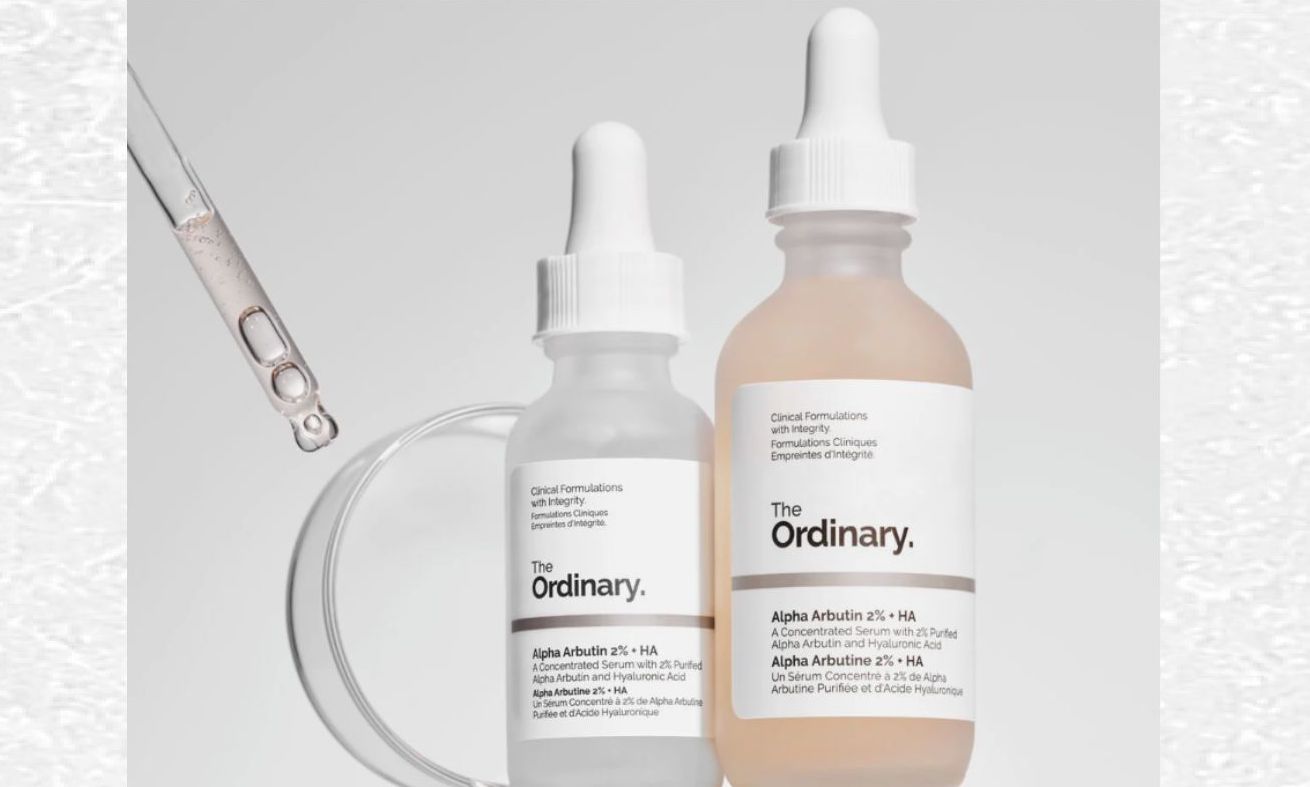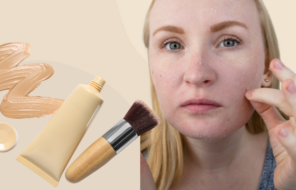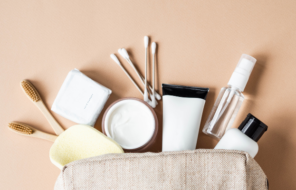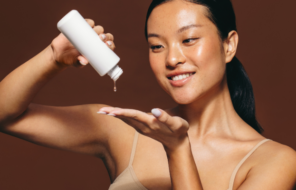If you have skin brightening on your mind then hopefully arbutin skin care has been on your radar. In recent years, this ingredient exploded on the beauty scene as the gentler or more natural alternative for the highly skin-lightening but controversial hydroquinone. If it hasn’t been on your radar, we’re going to make it crystal clear how this ingredient might make your skin crystal clear. In this article, we explain what arbutin is and how it works. We’ll go over the unique benefits of arbutin for skin, as well as its potential side effects and uses.
What is arbutin for skin and how does it work?
Arbutin is a glycoside molecule that is able to lighten hyperpigmentation in the skin. It has become popular in recent years as an alternative to hydroquinone, an ingredient related to it that has become controversial in recent years.
Arbutin is derived from fruit plants – specifically, from bearberry plant, although it can come from other plants in the same family, as well. Alpha-arbutin is arbutin created in a lab from hydroquinone, and it is usually more potent than naturally-derived arbutin.
Once applied to the skin, arbutin works to fade hyperpigmentation by suppressing the activity of the enzyme responsible for melanin production, tyrosinase, and by then also inhibiting the maturation of melanosomes, the parts of the cell that hold and transport melanin.
In other words, arbutin suppresses melanin production to prevent dark spots and patches from showing up in the first place. So far, early research has shown that it can reduce the appearance of melasma, while there is plenty of anecdotal evidence suggesting it can help with other kinds of pigmentation.
In some instances, certain bacteria that live on the surface of the skin can turn arbutin into hydroquinone, which increases its effectiveness. It’s worth mentioning that there is still a debate in the beauty community over whether hydroquinone actually deserves the bad reputation it has, and we believe that its risks have often been blown out of proportion, but one should be careful when using it.
The main issue with hydroquinone is that it is not safe for use during pregnancy, while another problem with it is that in very rare cases, usually for people of color, high amounts of it can actually trigger skin darkening instead of brightening.
There are also concerns that it might be carcinogenic, but there is very little evidence backing up that fear. Either way, these issues do not apply to arbutin for skin, which is why it is starting to transcend hydroquinone in popularity.
Arbutin Benefits for Skin
- Brightening: Arbutin seems to fade hyperpigmentation through a few different chemical mechanisms. It can be used to target all kinds of dark patches on the skin, including melasma, post-acne marks, dark scars, sun spots, age spots, and even freckles. The result is that the skin looks more even-toned.
- Preventative: The mechanism by which arbutin works is a preventative one, so arbutin skin care can be used during times of increased hyperpigmentation risk in order to prevent damage from occurring in the first place.
- Gentle: Unlike other skin-brightening agents, arbutin on its own is quite gentle. It is unlikely to irritate the skin, and it doesn’t increase sensitivity to sun exposure. This also means that arbutin is safe to use every day, as well as in combination with other skin-brightening agents like vitamin C, kojic acid, or licorice root extract.
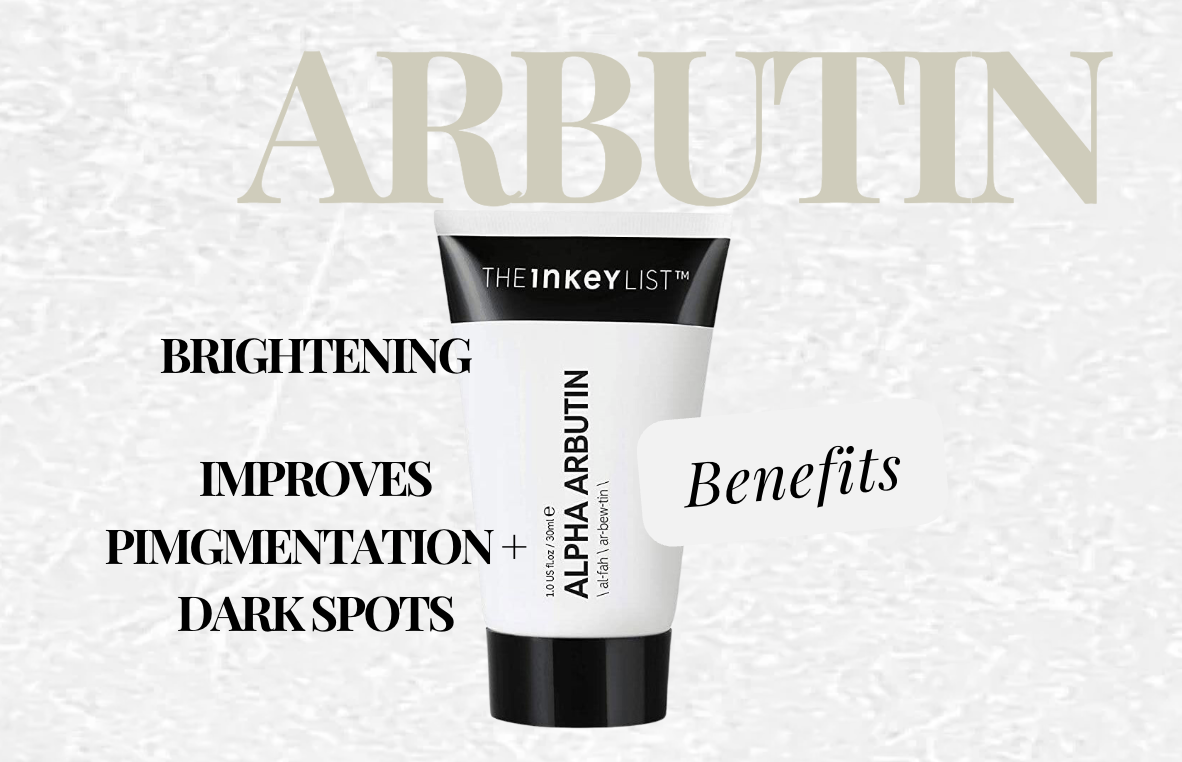
Potential Side Effects of Using Arbutin in Skin Care
Arbutin is extremely gentle, and as such, side effects are very rare. Because it is considered quite safe, some dermatologists even recommend it to pregnant women in order to prevent melasma. However, there are other dermatologists that urge patients to be more cautious, so do speak to your doctor if you are pregnant and considering arbutin.
However, as with any ingredient, it is still possible to have an allergic reaction to arbutin. This is why we always recommend testing new products on the arm or behind the ear for a few days before applying it all over the face – this recommendation applies to arbutin skin care as much as it applies to anything else.
What skin types is arbutin best for?
Arbutin is great for all skin types. It is a gentle, non-comedogenic ingredient that is easy to include in a variety of different formulations, which is why you will find everything from arbutin creams and serums to peels and masks.
If hyperpigmentation is one of your main skin concerns, your skin type shouldn’t stop you from trying arbutin – it’s just important that you select a formula that will suit your specific skin types.
Arbutin for Normal and Dry Skin
Any arbutin skincare product will work for normal and dry skin types! Arbutin is almost always formulated in combination with at least a few hydrating ingredients, and it can also be added to moisturizers to make sure they can reduce pigmentation in the skin. In most instances, you will still have to moisturize after applying an arbutin serum, but if you choose an arbutin cream it might be enough moisture all on its own.
Arbutin for Oily Skin
If your skin produces a lot of oils, you’ll be happy to know that most arbutin serums are actually super-light and non-greasy. You won’t have to search far to find one that will work for you. All you have to do is pay attention to the ingredient lists, and avoid products that contain a lot of heavy oils, which might bring out the oiliness in your skin.
Arbutin for Sensitive Skin
You should be more mindful if you have sensitive skin, of course. Many brands combine a few different active ingredients into their arbutin serum, like retinoids or exfoliating acids. While this makes the formulas faster-acting, it also makes them more likely to sensitize the skin.
If you like the idea of an all-in-one brightener and skin-renewer, just make sure to patch test and introduce the product into your routine very slowly. However, it will probably be best if you choose a gentler formula, like a moisturizing arbutin cream or a simple serum that only relies on arbutin for brightening action.
Arbutin for Aging Skin
Okay, so technically, all skin is aging, but if you’re concerned about the visible signs of aging like wrinkles or loss of tone in addition to pigmentation, you might want to find an arbutin serum reinforced with other anti-aging ingredients. These can include the more intense ones, like retinol or l-ascorbic acid (a form of vitamin C that is both anti-aging and brightening), as well as the gentler ones like antioxidant-rich extracts or peptides.
If you prefer, however, you can keep things separate by using one serum for brightening and another for anti-aging effects.
Arbutin for Acne-Prone Skin
If you have acne-prone skin, you probably want an arbutin serum that will lighten your dark post-acne marks. There are two approaches you can take: you can incorporate a basic arbutin serum into your acne-fighting routine that is free of heavy oils or comedogenic ingredients, or you can choose an arbutin serum that also contains acne-fighting ingredients like salicylic acid, glycolic acid, and azelaic acid.
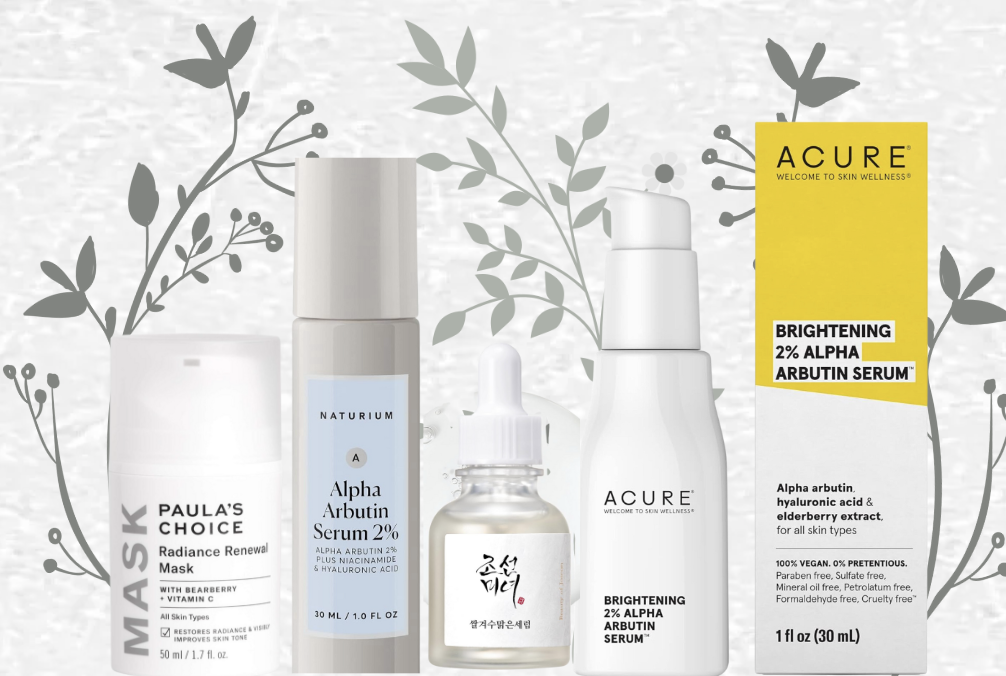
How to introduce arbutin into your skincare routine?
The way you introduce arbutin into your skincare routine heavily depends on the specific arbutin skincare product that you chose. Because it usually comes in the form of a serum, it is best to apply it to the skin after cleansing, toning, or applying any essences, and before any moisturizers or face oils. If your arbutin product comes as a moisturizer or mask, use it as directed on the packaging.
In general, arbutin on its own is safe enough to use every day, and even twice a day. However, some products with arbutin also contain chemical exfoliants or retinoids that are not appropriate for everyday use, especially if you have sensitive skin. Always use the product as directed, and if you find it a little harsh, reduce how often you use it.
It’s also very important to use arbutin in conjunction with a great SPF product. While arbutin on its own does not make the skin more photosensitive, sun exposure is still the leading cause of hyperpigmentation, so using arbutin without actually protecting the skin is a lost cause.
Lastly, remember that while arbutin alone is nice, you will achieve faster results if you combine it with other pigmentation-fading ingredients. Kojic acid, in particular, is often recommended in conjunction with arbutin, but so are, azelaic acid, niacinamide, licorice root extract, retinol, vitamin C, and glycolic acid. Of these, the latter three are the most intense.
Depending on your individual needs and level of skin tolerance, you might find yourself preferring a “more is more” approach or you might do better with sticking to fewer or gentler skin-brighteners.

